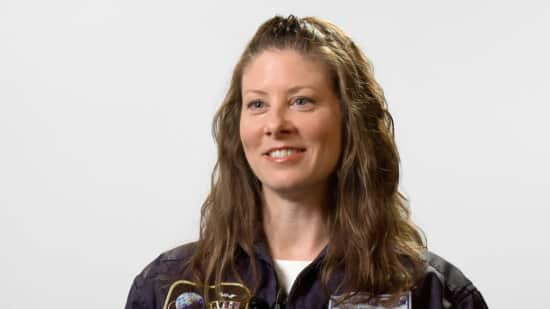Astronomer
What you need to know
Astronomers study planets, stars, galaxies, and other celestial bodies. Some astronomers study distant stars, galaxies, and phenomena such as neutron stars and black holes, and others monitor space debris that could interfere with satellite operations.
Astronomers may need to work at night, because radiation from the sun tends to interfere less with observations made during nighttime hours. Astronomers typically visit observatories only a few times per year and therefore keep normal office hours.
Some of the things a physicist or astronomer might do:
- Develop scientific theories and models that attempt to explain the properties of the natural world, such as the force of gravity or the formation of subatomic particles
- Plan and conduct scientific experiments and studies to test theories and discover properties of matter and energy
- Write proposals and apply for funding to conduct research
- Do complex mathematical calculations to analyze physical and astronomical data, such as data that may indicate the existence of planets in distant solar systems or new properties of materials
- Design new scientific equipment, such as telescopes and lasers
- Develop computer software to analyze and model data
- Write scientific papers that may be published in scholarly journals
- Present research findings at scientific conferences and lectures
Watch this video to learn more from our astronomer role model:
- Analytical skills: Astronomers need to think logically in order to carry out scientific experiments and studies. They must be precise and accurate in their analyses because errors could invalidate their research.
- Communication skills: Astronomers present their research at scientific conferences, to the public, or to government and business leaders. Astronomers write technical reports that may be published in scientific journals. They also write proposals for research funding.
- Critical-thinking skills: Astronomers must carefully evaluate their own work and the work of others. They must determine whether results and conclusions are accurate and based on sound science.
- Curiosity: Astronomers work in fields that are on the cutting edge of technology. They must be very keen to learn continuously throughout their careers in order to keep up with advances in a wide range of technical subjects.
- Interpersonal skills: Astronomers must collaborate extensively with others in both academic and industrial research contexts. They need to work well with others toward a common goal. Interpersonal skills also should help researchers secure funding for their projects.
- Math skills: Astronomers perform complex calculations involving calculus, geometry, algebra, and other areas of math. They must express their research in mathematical terms.
- Problem-solving skills: Astronomers use scientific observation and analysis, as well as creative thinking, to solve complex scientific problems. Astronomers may need to redesign their approach and find a solution when an experiment or theory fails to produce the needed information or result.
- Self-discipline: Astronomers need to stay motivated, since they spend a lot of time analyzing large datasets to try to discern patterns that will yield information. This work requires the ability to focus for long periods.
Watch this video to learn more from our astronomer role model:
The average pay for astronomers in the United States was $132,170 in May 2024 according to the U.S. Bureau of Labor Statistics.
The specific pay depends on factors such as level of experience, education and training, geographic location, and specific industry.
About 1,600 new job openings for both astronomers and physicists are projected each year, on average, over the next 10 years in the United States. In 2023 there were about 2,400 astronomers and 21,100 physicists working in the United States.
Overall employment of astronomers is projected to grow 7 percent from 2023 to 2033 according to the U.S. Bureau of Labor Statistics. This is faster than the average for all occupations.
A large part of astronomy research depends on federal funds, so federal budgets have a substantial impact on job prospects from year to year.
A Ph.D. in physics, astronomy, or a related field is needed for jobs in research or academia or for independent research positions in industry.
Most astronomy graduate students have a bachelor’s degree in physics or a related field. A bachelor’s degree in physics is often considered good preparation for Ph.D. programs in astronomy, although an undergraduate degree in astronomy may be preferred by some universities.
Discover some of the courses you will take pursuing a degree in Astronomy or Physics.
Watch this video to learn more from our astronomer role model:


